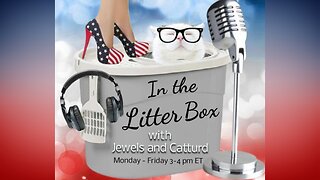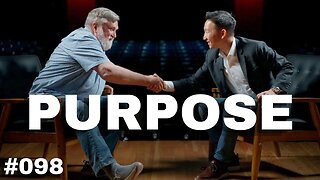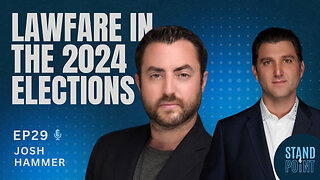When the Mind Shapes Reality, Belief is Good For You (Part 1)
Medical mystery Wim Hof has put his body to the test, and the science is in: belief is really good for you. Especially if you learn to use the power of your mind (and lungs) to control your immune system. But what’s going on? How is it that your mind, a part of you that doesn’t even seem to have a physical location, shapes reality? How can thoughts have such a huge influence on everything from your immune system, to how likely you are to die in the next decade?
Join us as we sit down in the middle of a global panic and figure out the ways in which the mind affects medical outcomes, and why training yourself to overcome what the brain and body want - can mean the difference between success and tragedy.
ªº¬˚∆≤≥≤≥ Subscribe & Ring the bell to study the Secrets of the Universe ≤≥≤≥∆˚¬ºª
ªº¬˚∆≤≥≤≥ Join the mailing list http://eepurl.com/gRUCZL ≤≥≤≥∆˚¬ºª
EPISODE LINKS:
Dr. Kox Website: https://www.radboudumc.nl/en/people/matthijs-kox
Dr. Kox Publications: https://publons.com/researcher/2362625/matthijs-kox/
Dr. Kox Study on Wim Hof: https://www.pnas.org/content/111/20/7379
PODCAST INFO:
Blog: http://demystifyingscience.com/blog
Apple Podcasts: https://apple.co/3uhn7J1
Spotify: https://spoti.fi/39IDJBD
RSS: https://anchor.fm/s/2be66934/podcast/rss
Full episodes playlist: https://bit.ly/3sP1WgR
Clips playlist: https://bit.ly/2OieYEG
Donate: rb.gy/a7ueoz
Swag: https://bit.ly/2PXdC2y
SOCIAL:
- Twitter: https://twitter.com/demystifysci
- Facebook: https://www.facebook.com/groups/demystifyingscience
- Instagram: https://www.instagram.com/demystifysci/
We wrote and performed the music in this episode!
Shilo Delay: https://soundcloud.com/laterisgone
And everywhere else (Spotify, etc..)
https://g.co/kgs/fc8WbA
#WimHof #ConsciousControl #MindOverMatter
ESSAY REFERENCES:
Benedetti, F., Pollo, A., Lopiano, L., Lanotte, M., Vighetti, S., & Rainero, I. (2003). Conscious expectation and unconscious conditioning in analgesic, motor, and hormonal placebo/nocebo responses. The Journal of neuroscience : the official journal of the Society for Neuroscience, 23(10), 4315–4323. https://doi.org/10.1523/JNEUROSCI.23-10-04315.2003
BMJ Mortality Data: https://www.bmj.com/content/bmj/suppl/2018/08/15/bmj.k3096.DC1/mid_life_mortality_v37_datasupp.pdf
Buck, M. (2012) The Placebo Response in Pediatric Clinical Trials. Pediatric Pharmacotherapy, UVA Newsletter. URL: https://med.virginia.edu/pediatrics/wp-content/uploads/sites/237/2015/12/201203.pdf
Gehlen, F. (1977). Toward a Revised Theory of Hysterical Contagion. Journal of Health and Social Behavior, 18(1), 27-35. doi:10.2307/2955393
Hahn, R. A., & Kleinman, A. (1983). PERSPECTIVES OF THE PLACEBO PHENOMENON: Belief as Pathogen, Belief as Medicine: “Voodoo Death” and the “Placebo Phenomenon” in Anthropological Perspective. Medical Anthropology Quarterly, 14(4), 3–19. doi:10.1525/maq.1983.14.4.02a00030
Howe, L. C., Goyer, J. P., & Crum, A. J. (2017). Harnessing the placebo effect: Exploring the influence of physician characteristics on placebo response. Health psychology : official journal of the Division of Health Psychology, American Psychological Association, 36(11), 1074–1082. https://doi.org/10.1037/hea0000499
Hysterical Contagion: https://en.wikipedia.org/wiki/Hysterical_contagion
Nocebo response: https://www.health.harvard.edu/newsletter_article/The_nocebo_response
Placebo Effect: https://en.wikipedia.org/wiki/Placebo#Effects
Psychophysiology: https://en.wikipedia.org/wiki/Psychophysiology
Quattrone, A., Barbagallo, G., Cerasa, A. and Stoessl, A.J. (2018), Neurobiology of placebo effect in Parkinson's disease: What we have learned and where we are going. Mov Disord., 33: 1213-1227. https://doi.org/10.1002/mds.27438
Sonawalla, S. B., & Rosenbaum, J. F. (2002). Placebo response in depression. Dialogues in clinical neuroscience, 4(1), 105–113. https://doi.org/10.31887/DCNS.2002.4.1/ssonawalla
Sohn, E. (2019). Decoding the neuroscience of consciousness. Nature, https://www.nature.com/articles/d41586-019-02207-1
Tanzania’s Laughter Epidemic: https://en.wikipedia.org/wiki/Tanganyika_laughter_epidemic
Wartolowska, K., Judge, A., Hopewell, S., Collins, G. S., Dean, B. J., Rombach, I., ... & Carr, A. J. (2014). Use of placebo controls in the evaluation of surgery: systematic review. Bmj, 348.
Westen, D., Blagov, P. S., Harenski, K., Kilts, C., & Hamann, S. (2006). Neural bases of motivated reasoning: An fMRI study of emotional constraints on partisan political judgment in the 2004 US presidential election. Journal of cognitive neuroscience, 18(11), 1947-1958
Yoo, H. K., Joung, Y. S., Lee, J. S., Song, D. H., Lee, Y. S., Kim, J. W., Kim, B. N., & Cho, S. C. (2013). A multicenter, randomized, double-blind, placebo-controlled study of aripiprazole in children and adolescents with Tourette's disorder. The Journal of clinical psychiatry, 74(8), e772–e780. https://doi.org/10.4088/JCP.12m08189
-
 LIVE
LIVE
Edge of Wonder
1 hour agoThe Art of Counterfeiting Currency: CIA, China & Iran Sponsored Fake Money?
553 watching -
 LIVE
LIVE
WeAreChange
2 hours agoMusk Drops Warning! Apple And Microsoft MERGE AI To Create 'Woke Death Star'!
3,850 watching -
 2:04:25
2:04:25
The Quartering
4 hours agoAmerican Flags Banned In Gym, Hot Dog Champion Gets Woke, Based NBA Coach & Woke Gaming Meltdown
25.7K5 -
 1:18:21
1:18:21
Redacted News
5 hours agoRussia LAUNCHES Nuclear War Game Exercises on U.S. Doorstep, Hunter found guilty | Redacted Live
69.1K305 -
 2:02:37
2:02:37
Revenge of the Cis
4 hours agoEpisode 1356: The House Always Wins
43K9 -
 1:02:33
1:02:33
In The Litter Box w/ Jewels & Catturd
23 hours agoDems Crash & Burn | In the Litter Box w/ Jewels & Catturd - Ep. 584 - 6/11/2024
63.8K31 -
 1:05:08
1:05:08
Barstool Chicago
5 hours agoThe Mid Show LIVE | Tuesday, June 11, 2024
33.4K3 -
 1:12:57
1:12:57
Awaken With JP
7 hours agoTruth Conquers - LIES Ep. 44
70.4K65 -
 1:59:03
1:59:03
Matt Kim
7 hours agoDoes America Need God? w/ Pastor Doug Wilson | Matt Kim #098
44.9K13 -
 42:53
42:53
Standpoint with Gabe Groisman
6 hours agoEp. 29. Lawfare in the 2024 Elections with Josh Hammer
57.3K8